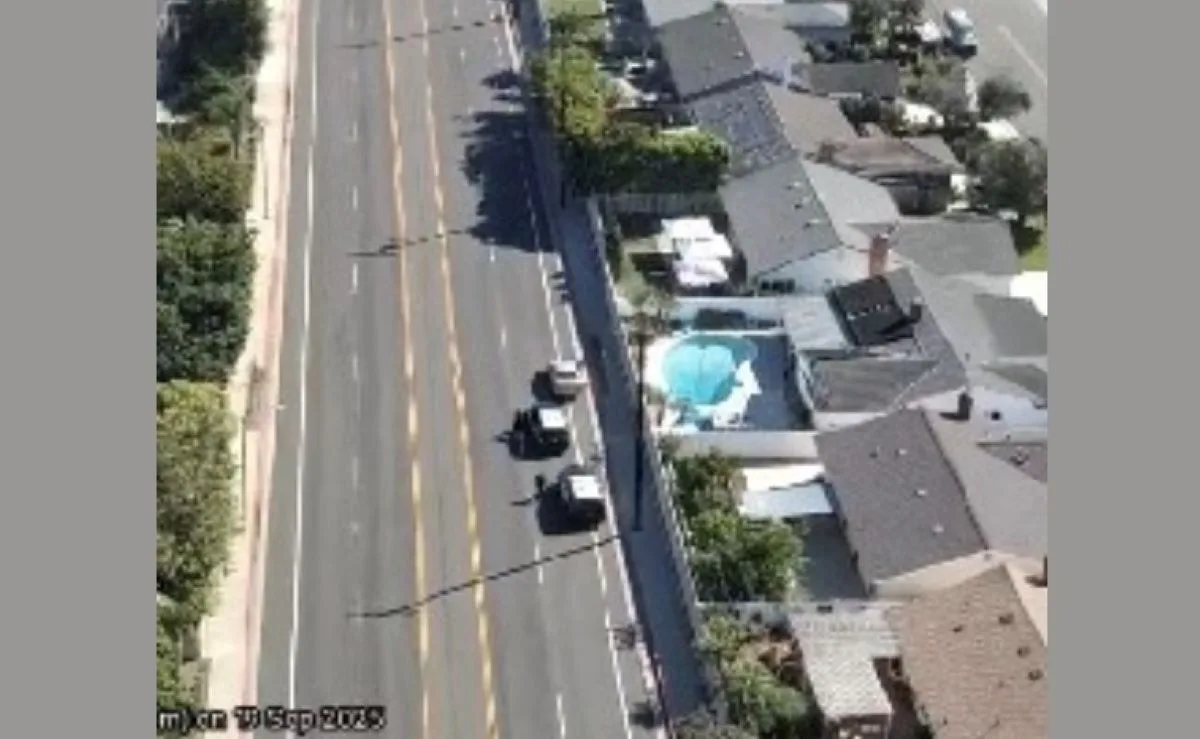Yesterday afternoon, a citizen reported a reckless driver heading southbound on Beach Blvd. from Talbert Ave., according to the Huntington Beach Police Department.
The HBPD’s Drone as First Responder (DFR) was launched and it quickly located the vehicle, which was seen driving on the wrong side of the road.
As the DFR drone operator tracked the suspect, the police officers quickly responded with lights and sirens.
The drone maintained visual until the officers safely stopped the vehicle.
The driver, a parolee, was arrested for reckless driving, and a parole violation hold was obtained.
The HBPD officers will continue to use every resource to protect everyone on the road.
Based on the latest California laws and procedures as of 2025, the parolee arrested for reckless driving in Huntington Beach faces multiple legal consequences:
1. Reckless Driving Penalties
Under California Vehicle Code §23103 VC, reckless driving is defined as operating a vehicle with willful or wanton disregard for the safety of persons or property. Even if no one is injured, it’s considered a criminal misdemeanor offense.
For a first-time offense, the penalties may include:
- Up to 90 days in jail
- Fines ranging from $145 to $1,000
- Two points on the driver’s DMV record
- Insurance rate increases (often 50% or more)
- A conviction that stays on the record for up to 10 years
If the reckless driving involved aggravating factors (e.g., driving on the wrong side of the road, evading police), the penalties could escalate to:
- Up to 6 months in jail
- License suspension
- Felony charges if injuries or death occurred
2. Parole Violation Consequences
Because the driver is a parolee, the reckless driving incident also constitutes a parole violation, which triggers a separate legal process.
The steps and consequences include:
Parole Revocation Hearings
- Preliminary Hearing: Determines if there’s probable cause for the violation.
- Final Hearing: A formal review where the parole board decides if parole should be revoked.
Possible Outcomes
- Return to prison to serve the remainder of the original sentence.
- Additional charges and sentencing if the violation involves new criminal activity.
- Stricter parole conditions upon future release (e.g., mandatory rehab, increased supervision).
- Financial penalties if applicable.
Decision-Making Tools
California uses a Parole Violation Decisionmaking Instrument to assess the severity of the violation and recommend sanctions. Factors considered include:
- Offense history
- Risk of reoffense
- Need for treatment services
- Prior parole violations
Reentry Court Option
If the parolee has a history of substance abuse or mental illness, they may be eligible for a reentry court program instead of incarceration. This program focuses on rehabilitation and includes:
- Structured supervision
- Drug and alcohol testing
- Treatment services
- Incentives and sanctions based on progress
Summary
The parolee arrested for reckless driving faces:
- Criminal penalties for the driving offense
- A parole violation that could lead to re-incarceration
- Possible eligibility for rehabilitation programs depending on their background

